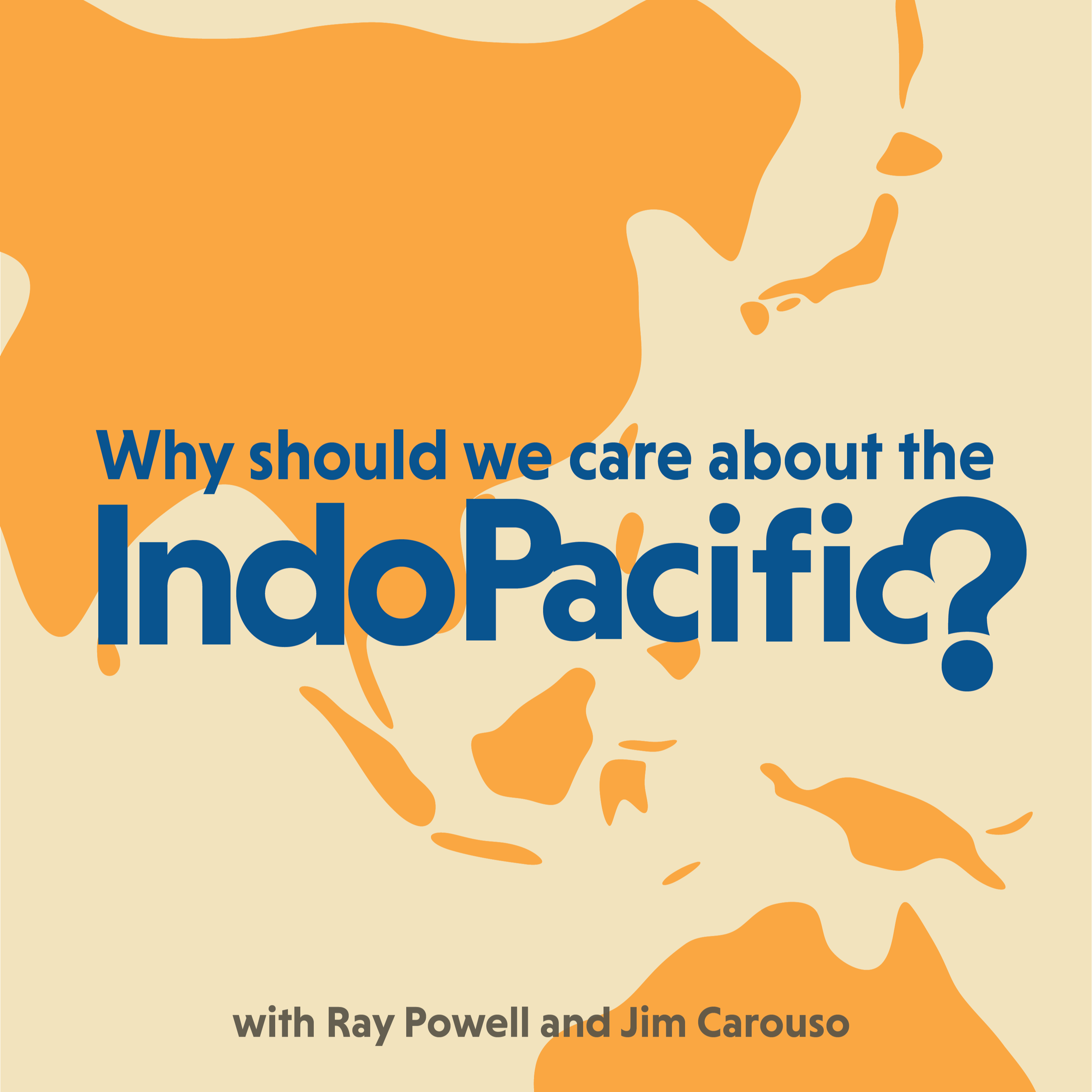
Why Should We Care Who Wins the U.S.-China Trade War?

Why Should We Care About the Indo-Pacific?
Deep Dive
Shownotes Transcript
Founder and CEO of APAC Advisors Steve Okun) joins Jim and Ray to talk about the suddenly raging trade war between the U.S. and China and what kind of impact it may have on the global trading system.
Steve observes that international investment is largely frozen due to the uncertainty about what the U.S. goals are, which tariffs are temporary versus permanent, and whether the U.S. and China can come to a negotiated settlement.
Steve also explains that while China has certainly exploited its advantage in manufacturing, the U.S. has long enjoyed its own advantage in the services sectors–such as entertainment, finance, health, and tourism. He says these U.S. industries may suffer under a more restrictive trade environment.
The discussion also turns to international organizations and groupings like the World Trade Organization, Asia-Pacific Economic Cooperation, and the Association of Southeast Asian Nations (ASEAN), and whether they are losing influence in the global system as the big powers go their own way.
Steve then speculates how U.S-China trade talks may proceed - and what cards Donald Trump and Xi Jinping believe they still have to play. Regardless, he expects continued volatility to continue as a new normal moving forward.
Follow Steve Okun on his very popular LinkedIn profile), or at his consultancy, APAC Advisors).
Follow us on X, @IndoPacPodcast); or on LinkedIn) or BlueSky) at our show title, Why Should We Care About the Indo-Pacific?
Follow Ray Powell on X (@GordianKnotRa)y) or on LinkedIn).
Follow Jim Carouso on LinkedIn).
Our podcast is produced by Ian Ellis-Jones and IEJ Media) (on X @ianellisjones) or LinkedIn)).
This podcast is sponsored by BowerGroupAsia), a strategic advisory firm that specializes in the Indo-Pacific.